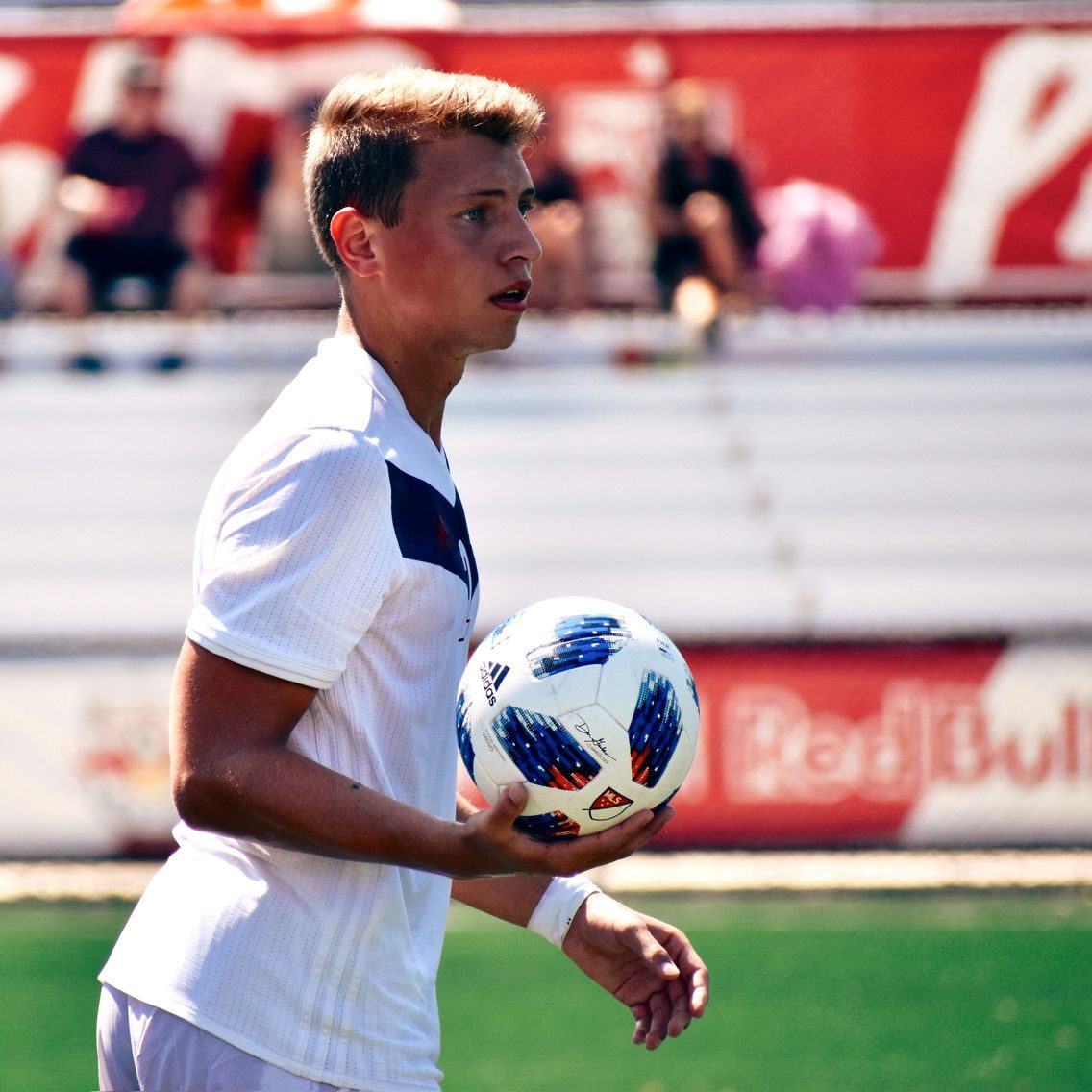Understanding the College Soccer Landscape
For aspiring student-athletes, understanding the college soccer landscape is vital. College soccer in the United States is diverse. It spans across three main NCAA divisions, NAIA, and junior colleges. Each level has its own set of standards for how good you have to be to play college soccer. Here’s what you need to know:

First, the NCAA Division I represents the highest level of college soccer. Athletes must show outstanding skills and often have a strong background in high school or club soccer. Scouts look for players who can compete immediately.
Next, NCAA Division II balances athletics and academics. Players still need to be quite skilled but often find more flexibility here. Coaches might focus more on development over four years.
NCAA Division III does not offer athletic scholarships. Instead, it emphasizes overall student experience. Here, passion for the game may outweigh pure skill.
The NAIA and junior colleges serve as alternatives. They offer varied competition levels. Some can rival NCAA programs, while others focus on player development.
Knowing which division fits your abilities and academic interests is just the start. Remember, how good you have to be to play college soccer is not only about talent. It’s about hard work, dedication, and finding the right program to match your skills and educational goals.
The Importance of Academic Eligibility
Academic eligibility is crucial for college soccer players. Both your grade point average (GPA) and standardized test scores factor into your college admission. Here’s how they impact your chances to play college soccer:
First, colleges check your academic records. They want to ensure you can handle college coursework. A good GPA supports your application strongly. It shows you are dedicated and disciplined, qualities essential for a college athlete.
Second, NCAA and NAIA have specific academic requirements. You must meet these to play. Each division might have different standards.
Third, high academic scores can provide more opportunities. They can lead to scholarships, including academic ones. This can ease the financial burden of college.
Lastly, maintaining eligibility throughout college is important. Players must keep good grades to continue playing. Poor academic performance can mean suspension from the team.
Understanding and meeting academic requirements is a big part of knowing how good you have to be to play college soccer. It’s not just about your soccer skills.
Soccer Skills Assessment
Assessing your soccer skills is key in determining if you’re fit for college soccer. Here are important elements to consider in a soccer skills assessment:
- Technical Abilities: You need strong ball handling, dribbling, passing, and shooting skills. Coaches want players who can execute these fundamentals under pressure.
- Tactical Knowledge: Understanding the game is crucial. Know different strategies and positions. Can you adapt to various game scenarios on the fly?
- Physical Fitness: Speed, strength, and stamina matter. You will face intense competition. Maintaining peak physical condition is essential.
- Mental Toughness: The ability to stay focused and overcome challenges is vital. How well do you handle stress and recovery from setbacks?
- Consistency: Showing consistent performance in games and practices can set you apart. Can you deliver quality play regularly?
Knowing how good you have to be to play college soccer depends on these assessments. Take time to develop your skills and showcase them to college coaches. Remember, detailed and honest self-assessment guides your improvement and helps find the right fit in college soccer programs.
Athletic Resumes and Highlight Reels
When preparing to play college soccer, creating a compelling athletic resume and highlight reel is crucial. Athletic resumes summarize your soccer career, achievements, and academic qualifications. Here’s what to include:
- Personal Information: Your name, age, and contact details are essential.
- Academic Achievements: Highlight your GPA, test scores, and any academic awards.
- Soccer Experience: List your club, high school teams, positions played, and years of experience.
- Stats and Achievements: Include game stats and any key accomplishments, like championships or MVP awards.
- Skills Showcase: Note special skills or strengths, such as speed or tactical knowledge.
Highlight reels are equally important. They give coaches a visual representation of your skills. Tips for an effective highlight reel include:
- Keep It Short: A reel should be no more than 3-5 minutes. Select only your best plays.
- Focus on Skills: Showcase a variety of skills—like passing, dribbling, and shooting.
- Use Clear Footage: Ensure the video quality is high. Coaches must see your skills clearly.
- Begin with Your Best: Start your reel with your strongest clips. First impressions matter.
Combining a detailed athletic resume with a well-produced highlight reel can make a significant impact on how good you have to be to play college soccer. It shows coaches your dedication both on and off the field.
 NCAA Divisional Differences and Opportunities
NCAA Divisional Differences and Opportunities
Understanding the various NCAA divisions is crucial for prospective college soccer players. Each division comes with its own unique opportunities.
NCAA Division I
If you aim for the top, NCAA Division I might be your goal. Here, the competition is fierce, and the expectations are high. Athletes often have extensive experience from high school or club soccer. The rewards include significant exposure, high-quality training facilities, and sometimes, athletic scholarships. But remember, the standards are stringent. You need to be very good to play at this level.
NCAA Division II
NCAA Division II offers a balanced approach. The focus here spans both athletics and academics. If you have the skills and also value your education, this could be a perfect match. Scholarships are available but less common than in Division I. Players here are skilled but also work towards academic achievement.
NCAA Division III
NCAA Division III prioritizes the overall college experience. Athletic scholarships are not available at this level. However, passion and dedication to soccer are highly regarded. If you love the game and want a strong educational foundation, Division III may provide the best opportunity.
NAIA
The NAIA is another avenue for playing college soccer. It has different eligibility requirements from the NCAA and can be less competitive in comparison to NCAA Division I. However, NAIA schools can offer personalized attention and scholarships. This division suits players looking to balance soccer with their studies.
Junior Colleges
Junior colleges are an entry point into college soccer. They often provide opportunities to develop your skills before transferring to a four-year institution. Playing at a junior college can be a strategic move if you’re looking to improve academically or athletically.
Knowing the differences between divisions and where you best fit is part of understanding how good you have to be to play college soccer. Align your soccer skills and academic goals with the opportunities each division offers to find your ideal college soccer path.
The Role of High School and Club Soccer Experience
The journey to play college soccer often starts with high school and club experience. Coaches at universities value players who have competed at these levels. Here’s why high school and club soccer are so important:
- Competition Level: High school and club soccer expose you to competitive play. It’s where you start to show how good you are.
- Skill Development: These settings offer chances to grow your skills over time. Strong skills are vital for college soccer.
- Scouting Grounds: Coaches scout for talent in high school and club games. Stand out here, and you may catch a coach’s eye.
- Teamwork and Leadership: High school and club teams teach you to work with others. These are key traits for success at the college level.
- Exposure to Pressure: Big games and tournaments can mimic college soccer pressure. Doing well can show you’re ready for that level.
High school and club experiences shape your readiness for college soccer. They show coaches your commitment and ability to play at a higher level. To make it to college soccer, excel in these arenas first. They are stepping stones to your college soccer career.
Recruitment Process and Communicating with Coaches
Understanding how to navigate the recruitment process and effectively communicate with college soccer coaches is crucial. Here are key aspects to consider:
- Start Early: Begin the recruitment process as early as possible. This gives you enough time to showcase your abilities and make a strong impression.
- Reach Out: Don’t wait for coaches to come to you. Send them emails introducing yourself and expressing your interest in their program. Include your athletic resume and highlight reel.
- Attend Camps and Showcases: These events are great opportunities to be seen and evaluated by multiple coaches. They can directly observe your skills under pressure.
- Follow Up: After initial contact, keep in touch with coaches. Update them on your latest achievements and game schedules. Show your continued interest and dedication.
- Ask Questions: When speaking with coaches, ask about their program’s philosophy, expectations, and team dynamics. This shows your interest in their specific program and helps you determine if it’s the right fit for you.
- Be Prepared: Before conversations or meetings, know your own stats, strengths, and areas for improvement. Coaches appreciate athletes who are self-aware and actively working on their skills.
Effective communication and proactive engagement are key in how good you have to be to play college soccer. Coaches look for players who are not only skilled but also passionate about their sport and education.
 Balancing Soccer and Academics: Tips for Student-Athletes
Balancing Soccer and Academics: Tips for Student-Athletes
Balancing soccer and academics is crucial for student-athletes aiming for college soccer. Here are practical tips to manage both effectively:
- Plan Your Schedule Carefully: Align your soccer training and match schedules with your academic workload. Use a planner to stay organized.
- Communicate with Teachers and Coaches: Keep both informed about your commitments. This helps in getting support when schedules overlap.
- Prioritize Time Management: Allocate specific times for studying and training. Stick to your schedule to ensure both get equal attention.
- Stay Disciplined: Avoid procrastination. Keep up with schoolwork and do not let it pile up. Staying on top of your studies reduces stress.
- Use Travel Time Wisely: Use time on buses or planes to catch up on studies. This can be a perfect time to review notes or read.
- Seek Academic Help: If you struggle, get help. Use school resources, like tutoring centers, to keep up with your classmates.
- Stay Healthy: Get enough sleep and eat well. A healthy body supports both soccer performance and academic success.
Mastering these tips can prove crucial on how good you have to be to play college soccer. It shows coaches and educators your capability to manage multiple responsibilities effectively.
Conclusion
In answering the question of how good you have to be to play college soccer, it’s clear that various factors come into play. Technical skills, physical conditioning, tactical understanding, and mental resilience are all crucial elements. Additionally, understanding the different divisions and leagues can help you gauge where you might fit best.
While the level of play is undoubtedly high, numerous pathways and options exist for players who are committed and willing to work hard. If you are passionate about soccer and willing to dedicate yourself to improving your skills and gameplay, there’s a place for you in college soccer. Your journey ultimately encompasses much more than just being ‘good enough’—it’s about continuous development, teamwork, and a love for the game.